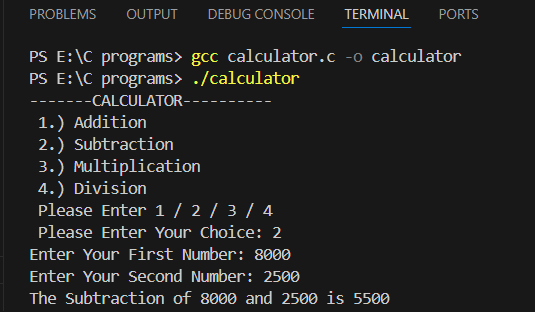ARDUINO TIMER / POMODORO TECHNIQUE UNDER 8 MINUTES !!
- PROCEDURE -
STEP 1 -:
Download the Arduino app on your laptop/desktop. Here is the link for the same,
- DOWNLOAD LINK -
STEP 2 -:
Open the Arduino app and click on the file left above, after that click on new.
STEP 3 -:
Copy the whole code and paste it into it.
- CODE -
#include <Wire.h>
#include <LiquidCrystal_I2C.h>
LiquidCrystal_I2C lcd(0x27, 16, 2); // I2C address 0x27, 16 columns and 2 rows
const unsigned long greetingInterval = 5000; // Display greeting for 5 seconds
const unsigned long studyMessageInterval = 5000; // Display study message for 5 seconds
const unsigned long startingMessageInterval = 5000; // Display starting message for 5 seconds
const unsigned long countdownInterval = 1000; // Update countdown every 1 second
const unsigned long studyTime = 26UL * 60UL * 1000UL; // 26 minutes in milliseconds
const unsigned long breakTime = 7UL * 60UL * 1000UL; // 7 minutes break time in milliseconds
unsigned long lastDisplayTime = 0; // Variable to store the last display time
unsigned long countdownStartTime = 0; // Variable to store countdown start time
int currentPhase = 0; // Variable to track the current phase
void setup() {
lcd.begin(16, 2); // initialize the lcd
lcd.backlight(); // turn on the backlight
// Display greeting message initially
lcd.setCursor(0, 0);
lcd.print("(:HELLO GUYS:) "); // You can make changes here inside " "
delay(greetingInterval); // Display greeting for the specified interval
}
void loop() {
// Get the current time
unsigned long currentTime = millis();
// Check the current phase and switch the display accordingly
switch (currentPhase) {
case 0:
displayStudyMessage(currentTime);
break;
case 1:
displayStartingMessage(currentTime);
break;
case 2:
displayCountdown(currentTime);
break;
case 3:
displayBreakMessage(currentTime);
break;
}
// You can add additional functionality here if needed
}
void displayStudyMessage(unsigned long currentTime) {
// Check if it's time to switch to the study message
if (currentTime - lastDisplayTime >= studyMessageInterval) {
// Switch the display to study message
lcd.clear();
lcd.setCursor(0, 0);
lcd.print("LIKE , SHARE !"); // You can make changes here inside " "
lcd.setCursor(0, 1);
lcd.print("SUBSCRIBE!!"); // You can make changes here inside " "
// Update phase and reset last display time
currentPhase++;
lastDisplayTime = currentTime;
}
}
void displayStartingMessage(unsigned long currentTime) {
// Check if it's time to switch to the starting message
if (currentTime - lastDisplayTime >= startingMessageInterval) {
// Switch the display to starting message
lcd.clear();
lcd.setCursor(0, 0);
lcd.print("Starting AURABOT"); // You can make changes here inside " "
lcd.setCursor(0, 1);
lcd.print("By AKS"); // You can make changes here inside " "
// Update phase and reset last display time
currentPhase++;
lastDisplayTime = currentTime;
// Set countdown start time when starting AURABOT
countdownStartTime = currentTime;
}
}
void displayCountdown(unsigned long currentTime) {
// Check if it's time to switch to the countdown
if (currentTime - lastDisplayTime >= countdownInterval) {
// Display countdown on LCD
lcd.clear();
lcd.setCursor(0, 0);
lcd.print("Countdown: ");
// Calculate remaining time in milliseconds
unsigned long elapsedTime = currentTime - countdownStartTime;
unsigned long remainingTime = studyTime - elapsedTime;
// Convert remaining time to minutes and seconds
int minutes = remainingTime / 60000;
int seconds = (remainingTime % 60000) / 1000;
// Display countdown in the specified format
lcd.print(minutes);
lcd.print(":");
if (seconds < 10) {
lcd.print("0"); // Add leading zero for single-digit seconds
}
lcd.print(seconds);
// Update countdown every 1 second
lastDisplayTime = currentTime;
// Check if the countdown has reached zero
if (remainingTime <= 0) {
// Reset the countdown start time and move to the break message phase
countdownStartTime = currentTime;
currentPhase++;
}
}
}
void displayBreakMessage(unsigned long currentTime) {
// Check if it's time to switch to the break message
if (currentTime - lastDisplayTime >= countdownInterval) {
// Display break message on LCD
lcd.clear();
lcd.setCursor(0, 0);
lcd.print("Take a Break for"); // You can make changes here inside " "
lcd.setCursor(0, 1);
lcd.print("7 Minutes"); // You can make changes here inside " "
// Update phase and reset last display time
currentPhase++;
lastDisplayTime = currentTime;
// Set countdown start time for the break
countdownStartTime = currentTime;
}
}
STEP 4 -:
Download This Library -:
LCD library -: Download
After opening the above-given link, you have to click on ' CODE ' then select 'DOWNLOAD ZIP' and save it in any folder you want.
STEP 5 -:
Now open the Arduino app and click on " SKETCH > INCLUDE LIBRARY > ADD . ZIP LIBRARY ". Then open the folder where you saved the LCD library and click on that file.
STEP 6 -:
Check if both the libraries, i.e #include <Wire.h> and #include <LiquidCrystal_I2C.h> are displaying colourful, in such way -:
STEP 7 -:
If the Wire library is displayed in a normal text, then you have to download the library by yourself but in most of the cases, the Wire library is pre-downloaded.
To download it follow the steps -:
SKETCH > INCLUDE LIBRARY > MANAGE LIBRARIES > THEN SEARCH FOR WIRE AND INSTALL THE FIRST ONE.
AT LAST, SAVE THE CODE USING " CTRL + S ".
YOUR PROJECT IS READY !!!
- AKS (Assured Krafted System)







Comments
Post a Comment